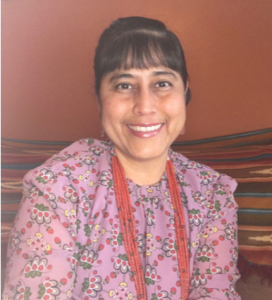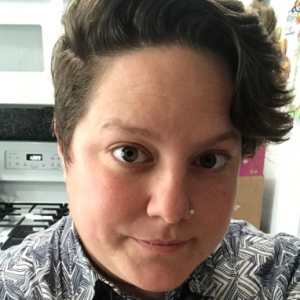Remember, Reclaim, Restore: A Post-Pandemic Pedagogy of Indigenous Love in Early Childhood Education
by Trisha L. Moquino and Katie Kitchens
In many ways, COVID-19 has uncovered what we’ve always known: The structures and systems that shape the United States are built on White supremacy. Early childhood education is no different; it is deeply rooted in anti-Indigeneity. Inviting educators to envision the pandemic as a portal and rejecting the notion of a return to the White supremacy inculcated in young children from the earliest years by American schooling, we reflect on the need to leave behind White supremacy and systems of oppression. We take with us spaces of resistance and the resolve to engage in intentional acts of solidarity whereby White non-Indigenous educators take on responsibility to uproot anti-Indigeneity in early childhood education. Although anti-Indigeneity is longstanding, we see the pandemic as a portal to center pedagogies of Indigenous love in early childhood education. To do so, in this paper, two early childhood educators, one Indigenous (Kewa, Cochiti, and Ohkay Owingeh Pueblos) and one White, name the legacy of harm perpetuated in early childhood classrooms and preschools and articulate a vision for “a Pedagogy of Indigenous Love.”
Trisha Moquino and Katie Kitchens, co-authors of this paper, are co-teachers in the Keres Children’s Learning Center (KCLC), a school dedicated to revitalization of the Cochiti Keres language. Keres is one of five languages spoken among the 19 Pueblo Indigenous Nations in New Mexico, and Cochiti Keres
is fluently spoken by about 100 people in the world. This paper explores the role that critical love has played in the affirmation of Indigenous young children, families, and communities prior to, amidst, and beyond COVID-19.
 Trisha L. Moquino is co-founder, education director, and Keres-speaking elementary guide at Keres Children’s Learning Center (KCLC) in Cochiti Pueblo, New Mexico. She is from the Tribal Nations of Cochiti Pueblo, Kewa, and Ohkay Ohwingeh Pueblos in New Mexico. Trisha is a certified Montessori elementary I (6–9-year-olds) and primary (3–6-year-olds) guide. She received her MA in Elementary and Bilingual Education from the University of New Mexico, where she completed her master’s thesis that laid out the vision for what would eventually become the KCLC. Her daughters inspired her to act on that vision.
Trisha L. Moquino is co-founder, education director, and Keres-speaking elementary guide at Keres Children’s Learning Center (KCLC) in Cochiti Pueblo, New Mexico. She is from the Tribal Nations of Cochiti Pueblo, Kewa, and Ohkay Ohwingeh Pueblos in New Mexico. Trisha is a certified Montessori elementary I (6–9-year-olds) and primary (3–6-year-olds) guide. She received her MA in Elementary and Bilingual Education from the University of New Mexico, where she completed her master’s thesis that laid out the vision for what would eventually become the KCLC. Her daughters inspired her to act on that vision.
 Katie Kitchens (they/them/she/her) has worked in public, private, and non-profit Montessori environments for the past decade as an instructional coach, teacher trainer, and primary and elementary guide. Currently, Katie serves as the English-speaking elementary guide at Keres Children’s Learning Center (KCLC) and is pursuing a PhD in educational studies, researching racial identity development in young White children. They strive to work in partnership to uproot racist ideology within themself and their community, and work in coalition toward what Dr. Montessori called universal liberation.
Katie Kitchens (they/them/she/her) has worked in public, private, and non-profit Montessori environments for the past decade as an instructional coach, teacher trainer, and primary and elementary guide. Currently, Katie serves as the English-speaking elementary guide at Keres Children’s Learning Center (KCLC) and is pursuing a PhD in educational studies, researching racial identity development in young White children. They strive to work in partnership to uproot racist ideology within themself and their community, and work in coalition toward what Dr. Montessori called universal liberation.